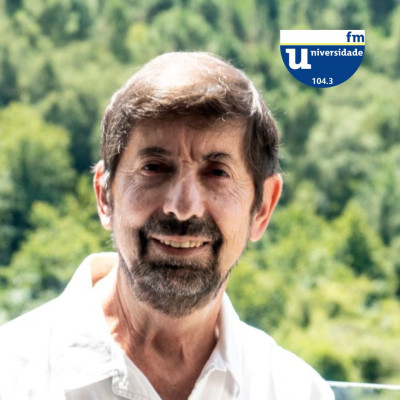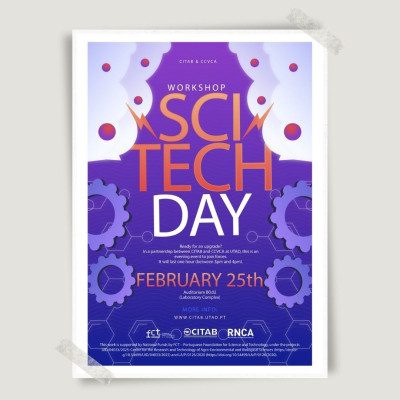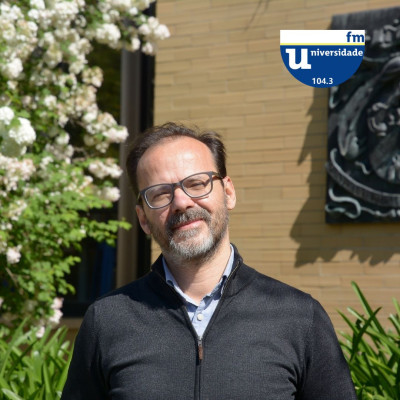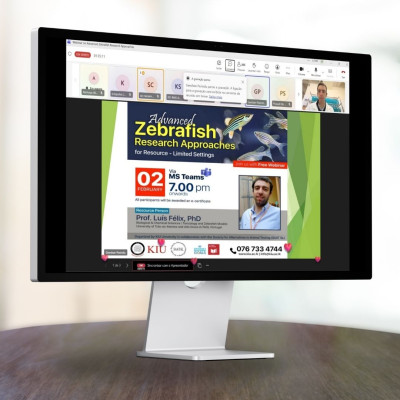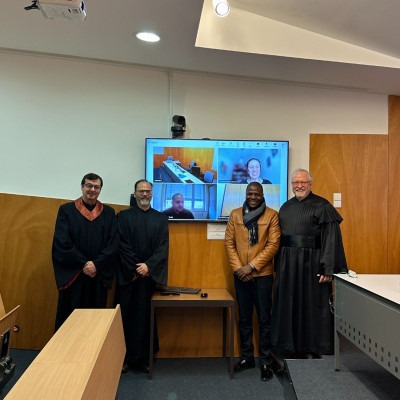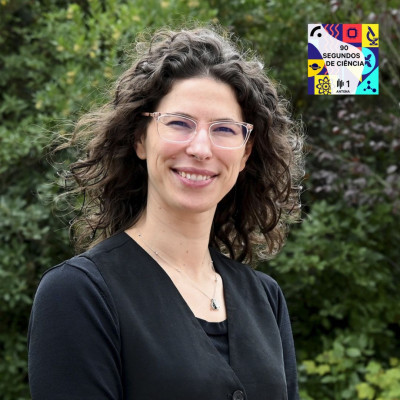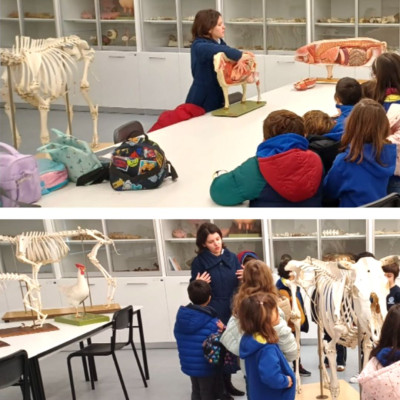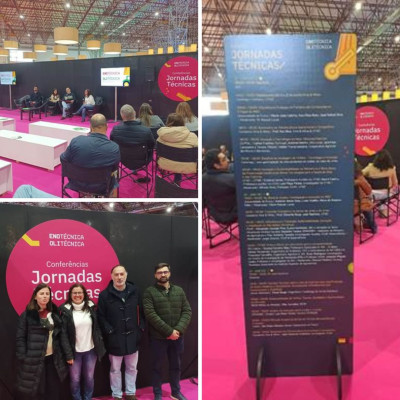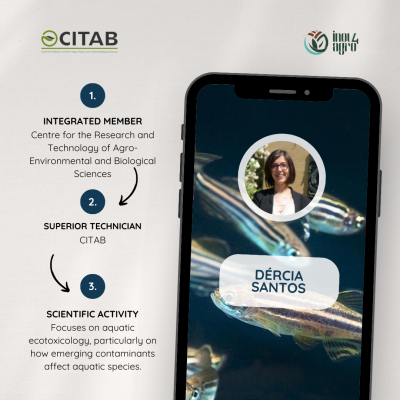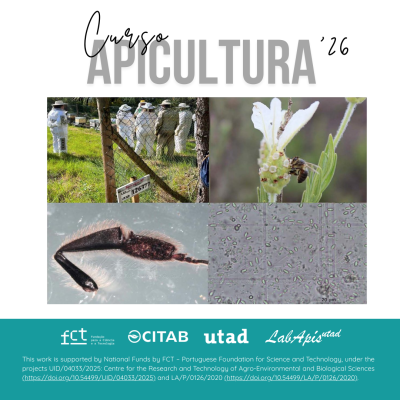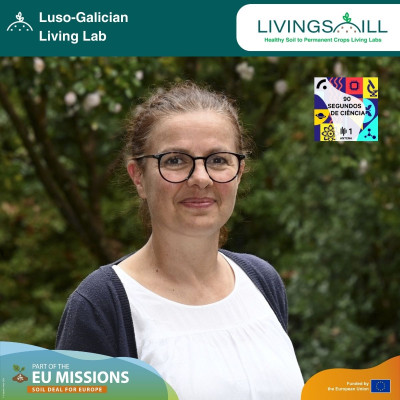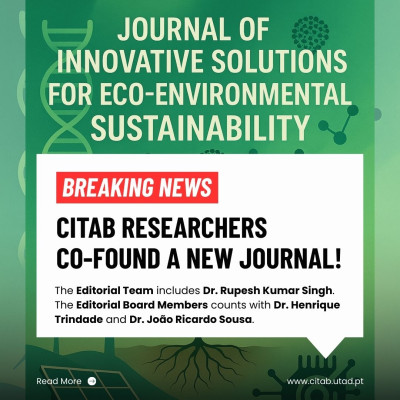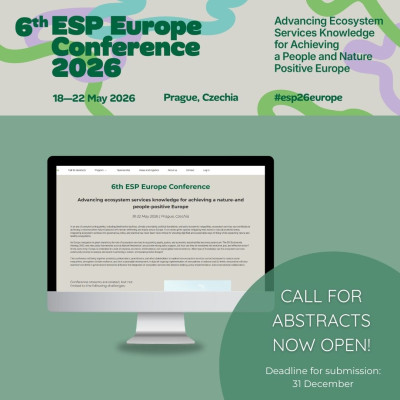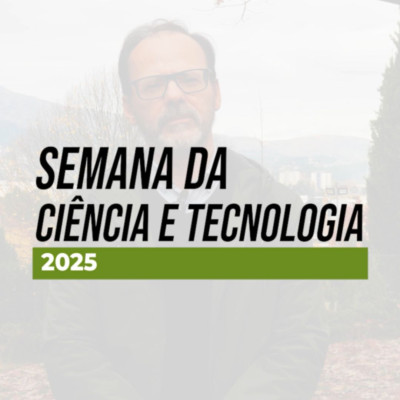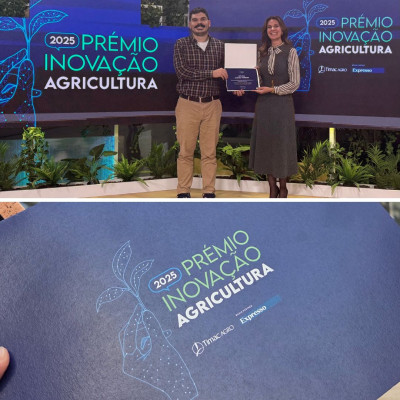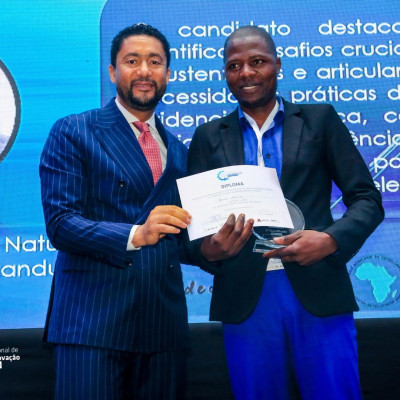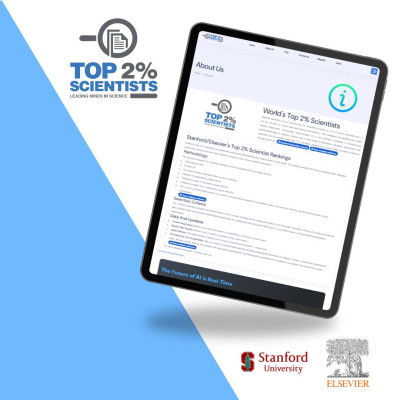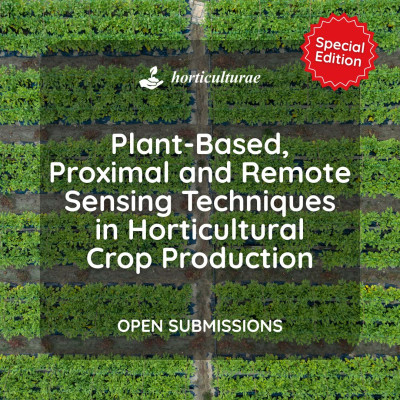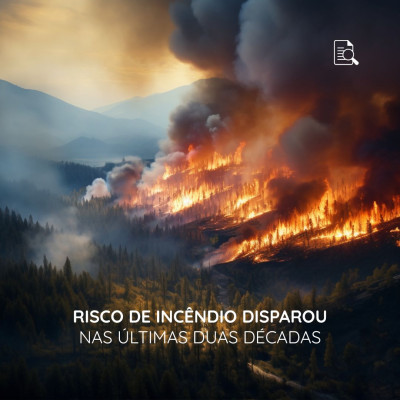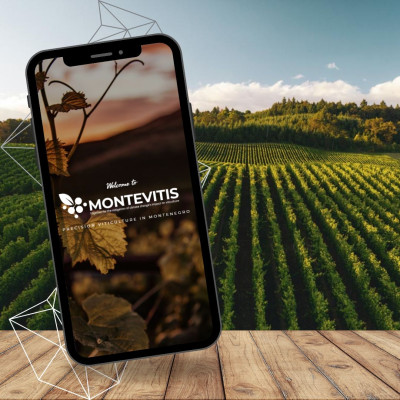Welcome to CITAB
The scope of CITAB is focused on the agro-food and forestry systems using the production-chain approach as a whole. It is composed of a multidisciplinary team with expertise ranging from fundamental sciences such as biology and chemistry to agronomists, forestry engineers and ecologists.
Learn moreLatest News
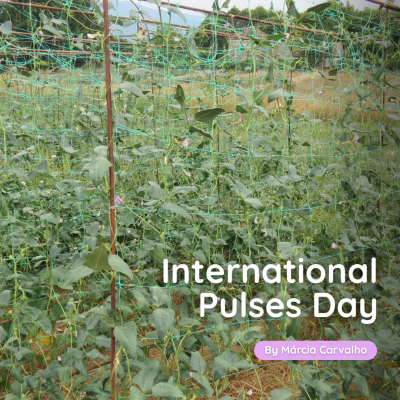
International Pulses Day
10 February marks International Pulses Day, which this year is celebrated und...
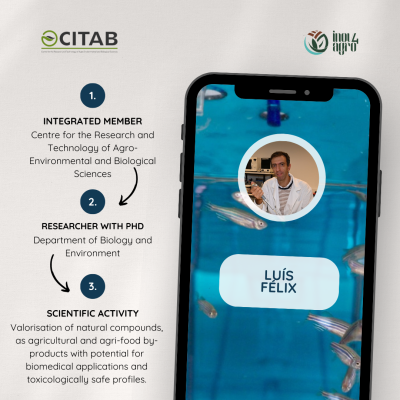
Get to know... Luís Félix
Learn about the work of our Integrated Members.
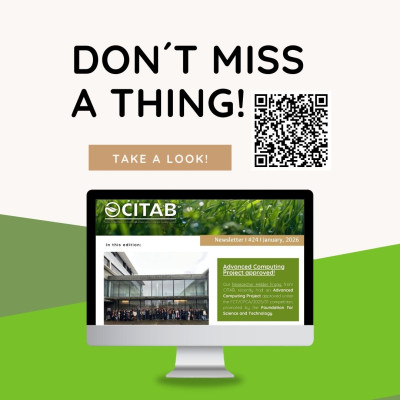
January edition is out now!
We start the year by sharing the main highlights of the month.
Highlighted Project
LivingSoiLL - Healthy Soil to Permanent Crops Living Labs
Start Date: 2024/06
Duration: 54 months
Healthy soil is at the heart of the European Green Deal and one of the main targets of the Mission Board. The EU is currently struggling
with soil degradation which is undoubtedly linked to agriculture intensification. Thus, a new soil management paradigm on soil
monitoring, restoration and protection must be an endeavour of farmers, scientists, businesses, politicians and citizens. LivingSoiLL
intends to respond to these challenges by establishing 5 Living Labs (LLs) in PT, FR, ES, IT and PL focused on permanent crops
(vineyards, olive groves, chestnuts, hazelnuts and apple orchards), comprising at least 50 demonstration sites and 10 lighthouses, and
with active participation of more than 2000 local actors. These LLs will focus on improving healthy soils and ecosystem services
through co-creating, co-implementing and co-testing (digital) solutions to reduce erosion, improve soil structure, reduce the impacts
of the intensive use of fertilizers and pesticides, increase water storage, enhance soil biodiversity, and the overall resilience of soil. By
promoting locally adjusted innovative solutions, spreading sustainable soil management practices and enhancing soil literacy,
LivingSoilLL will contribute to the overall improvement of soil health and environmental resilience. This approach, applied in real-life
settings, will mobilize farmers, farm advisors and local communities, facilitating the assemblage of formal, scientific knowledge with
experience-based farmer´s know-how, fostering a forum for the exchange of experiences and best practices. LivingSoilLL is also
designed to produce policy recommendations on best soil management practices on permanent crops to reduce erosion while
promoting other soil health indicators. With its approach, LivingSoiLL projects intends to contribute to creating the necessary
conditions to EU be able to sustain healthy soils for future generations
